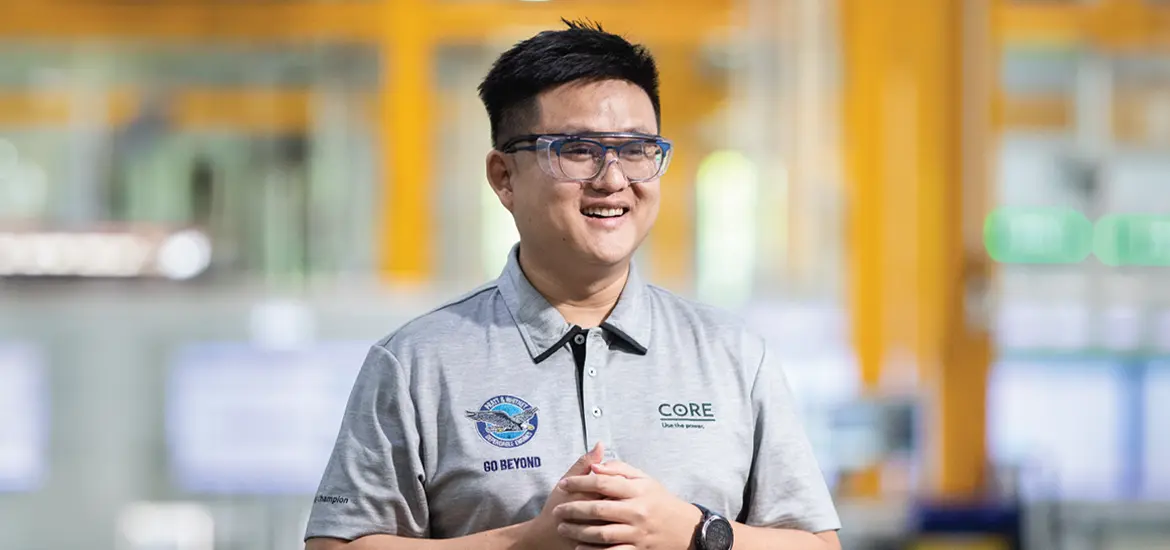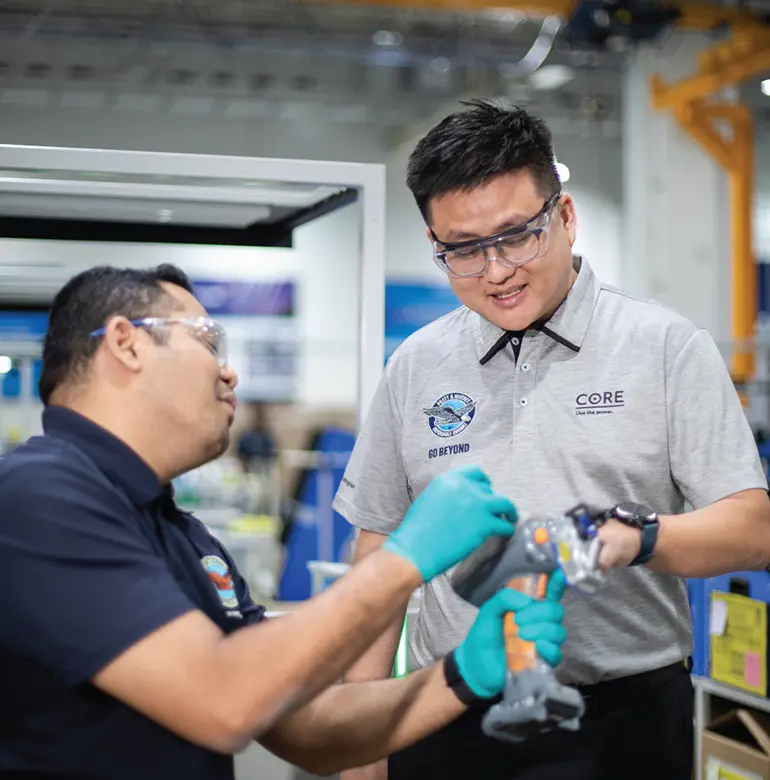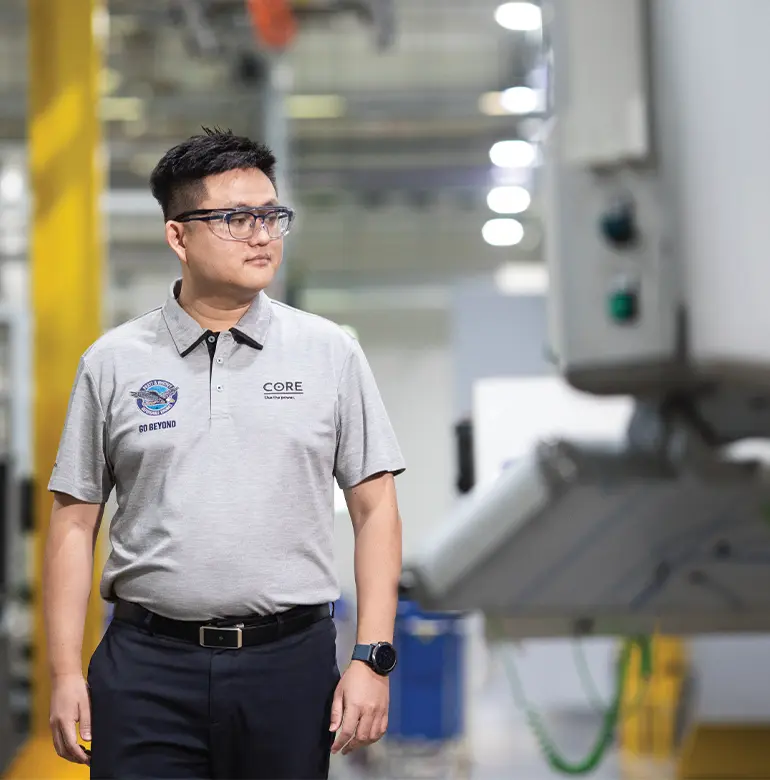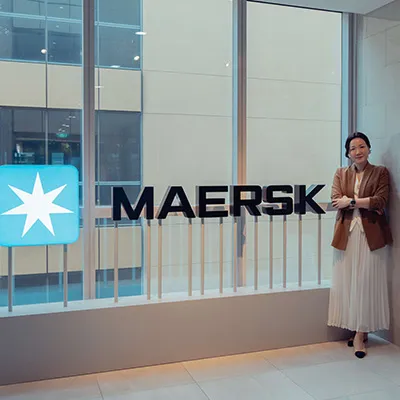Fadhil Muhammed, 35, is an Operations Manager at American aerospace manufacturer Pratt & Whitney, which produces key components of the GTF™ engine at its Singapore facility. He has a Masters in Logistics, Materials, and Supply Chain Management from University College Dublin.
1. How did you come to join Pratt & Whitney and what opportunities have you had here? What were some challenges you had to overcome when joining a new industry?
I was working long hours as a Workplace Safety & Health Officer (WSHO) in the construction industry. As I was just starting my family, I wanted better work-life balance and saw a job opening for an Environment, Health and Safety (EH&S) Engineer at Pratt & Whitney. Applying for the job turned out to be a great career decision.
Pratt & Whitney is one of the biggest aerospace companies in the world, with facilities across the globe and multiple sites in Singapore alone. As an EH&S Engineer for its Singapore manufacturing facility P&W NGPF Manufacturing Company (Singapore), I was involved in establishing a very comprehensive EH&S system. At the same time, I, together with my team, supported various departments in day-to-day EH&S matters. It was a challenging time, but it was also extremely rewarding. Even though I had years of experience working as a WSHO, I still had a lot to learn as workplace safety implemented in aerospace manufacturing is different from how it is done in the construction industry. I’m grateful that I have a strong and supportive team that was able to show me the ropes and get me up to speed. This was also when I started developing essential skills, such as critical thinking and problem-solving, which continues to serve me well today.









